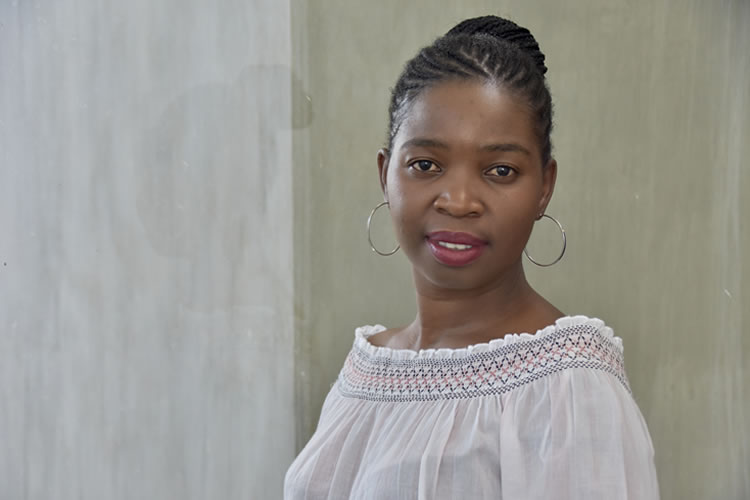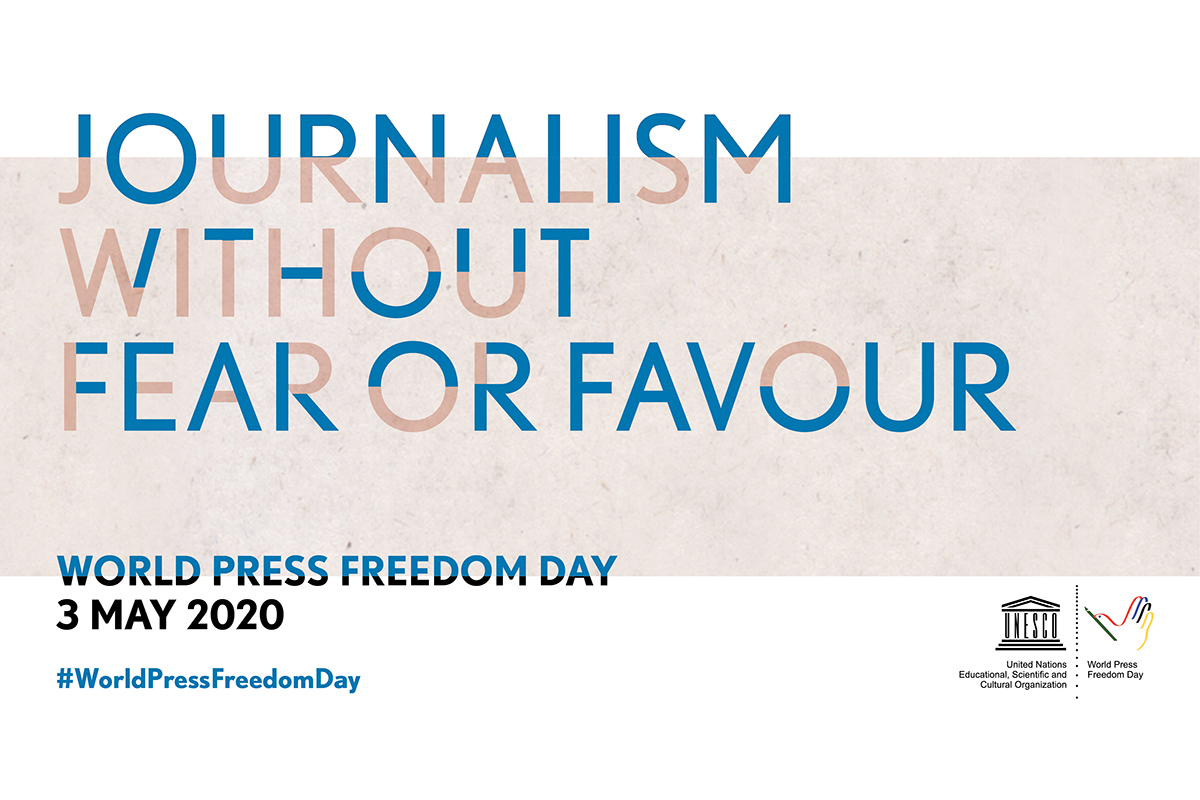As the world commemorates the World Press Freedom Day, the Centre for Human Rights, University of Pretoria, commends the African Commission on Human and Peoples’ Rights for making available the revised Declaration of Principles of Freedom of Expression and Access to Information in Africa at a time when the world has been plunged into a global health crisis, COVID-19. The current Declaration replaces the 2002 Declaration of Principles of Freedom of Expression in Africa. The revision was undertaken by the Special Rapporteur on Freedom of Expression and Access to Information (Special Rapporteur) against the backdrop developments in the developments that have taken place in the context of freedom of expression, access to information.
The utility of the revised Declaration in the context of COVID-19 cannot be underestimated as some of the governments’ responses to the pandemic impact on the right of access to information and freedom of expression, particularly the work of journalists and other media practitioners. In this health calamity, it is important to reaffirm that press freedom is an essential element in preventing the spread of the virus. As governments respond to the deadly pandemic, journalists and other media practitioners play a significant role in dissemination of information about the state of national preparedness, precautionary measures, measures adopted for preventing and containing the virus and general information about the pandemic. Journalists and media practitioners also expose abuses by law enforcement in enforcing the government directives.
The UN Special Rapporteur on the promotion and protection of the right to freedom of opinion and expression advances that COVID-19 is an “intense global challenge to health and to the foundations of a democratic society” due to the numerous violations against media freedom across the continent. Journalists work under horrifying conditions in some African countries. Amnesty International established that “Somalia is one of the most dangerous places in the world to be a journalist”. The crackdown on the media, the arbitrary arrests, detention, intimidation of journalists and other restrictions freedom of expression being witnessed across the continent during the Covid-19 period is appalling and a regressive stance by the states that only stifle media freedom. Journalists are arrested for spreading false news, criticising their governments or misuse of social media platforms and working without accreditation.
The criminalisation of free speech is glaring in Egypt. The government’s attempts to control the information about COVID-19 has resulted in the arrest of journalists “challenge the official narrative”. For example, Atef Hasballah, editor of the AlkararPress was arrested for challenging the Health Ministry COVID-19 statistics. In Kenya, a journalist reportedly fell victim to physical abuses by the police whilst on the line on duty. Such abuses were also reported in Somalia, Rwanda, Zimbabwe, Uganda, Mozambique, Ghana and Tanzania. In light of these violations against journalists in Zimbabwe, Media Institute of Southern Africa (MISA) Zimbabwe called on the government of Zimbabwe to recognise the complementary role played by the media in fighting the spread of the coronavirus, instead of the prevailing perception that depicts journalists and media practitioners as adversaries. The Centre for Human Rights also expresses concern at the continued detention of journalists. It is even more perturbing as the world has been hit by a global pandemic and most prison conditions in Africa are squalid and not suitable to practicing World Health Organisation recommended preventive and precautionary measures.
In this crackdown on the media, the private media is disproportionately affected. In Zambia, Prime TV’s license was revoked by the Independent Broadcasting Authority (IBA), the broadcasting regulator at a time when the country is tackling the COVID-19. The cancellation of the license was said to be “in the interest of public safety, security, peace, welfare or good order.” Prime TV reportedly criticised the government of Zambia’s response to the COVID-19 pandemic. Similarly, in Tanzania, the licence of Mwananchi daily newspaper was suspended after the paper reported on the failure by President John Magufuli to follow social-distancing requirements while shopping. The Centre for Human Rights reiterates that, in this health crisis, in addition to informing the public, the media demands transparency, hold the government accountable, identify gaps in government responses and report on the excesses of those entrusted with enforcing the government directives (security and law enforcement agencies). Therefore, the media facilitates debate and provides the space to scrutinize various government interventions and responses to the COVID-19. Instead of closing media outlets, there is a need to ensure media diversity to enable information dissemination in multiple formats and languages to ensure a wide reach to promote public health awareness and foster compliance with government regulations.
The existing information gaps create a conductive ground for misinformation and disinformation to proliferate. This information disorder, that also thrives on fears about the pandemic, is a threat to efforts that are meant to contain the virus as people absorb misleading information about the nature, preventive measures and the cure of the virus. In undertaking to combat the spread of misinformation and disinformation some of the extreme measures that are tantamount to the criminalisation of journalism, targeting journalists have been adopted across the continent. Harsh laws are being used to punish the publication and distribution of false news. These punitive measures have also triggered fake news-related arrests that have a chilling effect on free speech and have the potential to silence whistleblowers and critics. In South Africa, the Media Monitoring Africa developed a platform for tackling false news, the Real411. The platform has been endorsed by the government. As the media partners with the government in disseminating credible COVID-19 information, the states should ensure that journalists have access to information to support professional journalism.
As journalists perform their duty to inform the public during the COVID-19 crisis, it is important to underscore the safety and mental well-being. In this health crisis, journalists, particularly freelance journalists are susceptible to contracting the virus due to inadequate or unavailability of Personal Protective Equipment. The Centre for Human Rights calls on states to adhere to principle 20 of the Declaration of Principles of Freedom of Expression and Access to Information in Africa, and ensure the safety of journalists and other media practitioners. In covering the pandemic, states should ensure that journalists receive the necessary tools and ensure their safety. The Centre for Human Rights commends the United Nations Educational, Scientific and Cultural Organization (UNESCO) for developing a Massive Open Online Course that is aimed at providing journalists with the requisite knowledge and tools to cover the COVID-19 calamity.
The Centre for Human Rights welcomes the UN Special Rapporteur on the promotion and protection of the right to freedom of opinion and expression’s report on Disease pandemics and the freedom of opinion and expression. The Centre also reiterates the call by the Special Rapporteur on Freedom of Expression and Access to Information in Africa to States and non-state actors to utilise the principles enshrined in the Declaration and uphold the rights to freedom of expression and access to information which are provided for under article 9 of the African Charter. It is essential that all measures that have been adopted by governments to curb the spread of the virus do not infringe on the rights of journalists and other media practitioners. A free media is required to proficiently tackle the spread of the coronavirus. The Centre thus calls on states to ensure media diversity and pluralism; protect journalists and other media practitioners; promote community media and ultimately guarantee media independence. The Centre for Human Rights also reaffirms the international human rights position that any limitation on the right to freedom of expression and access to information should be prescribed by law; necessary and proportionate and serve a legitimate aim.
For more information, please contact:

Tel: +27 (0) 12 420 4199
Fax: +27 (0) 86 580 5743
Hlengiwe.Dube@up.ac.za


